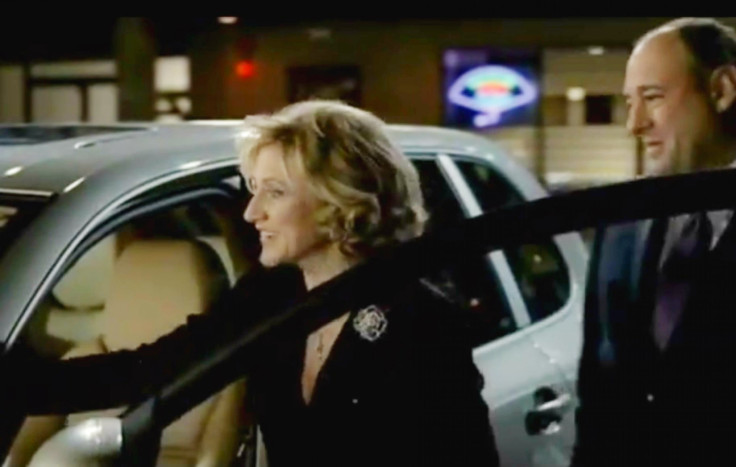Did Porsche Water Down Its Masculine Identity With A Cream Colored Cayenne For Women?

NOTE: If you are interested in gender differences in the car culture, also check out this study about car-color biases between men and women in the used car market.
Porsche decided years ago to go after a consumer base it has long neglected, women. The result?
According to a Harvard Business Review study, the German automaker has dropped its male customer base from 90 percent of all Porsche buyers to 85 percent. While the maker of the iconic 911, which has been in production since 1963, retains a very masculine identity, this shift toward women has worked.
“The move has paid off for Porsche: Sales increased … thanks in part to a rise in female buyers of the Panamera sedan and the Cayenne SUV, which has become the company’s best-selling car in America,” writes HBR blogger Andrew O’Connell.
The Cayenne SUV, introduced in 2002 in an effort to go after wealthy soccer moms, is the company’s best seller in the U.S. right now, with deliveries leaping 30 percent from last year to 15,582 for the January-to-October period. Panamera sales are down, but Porsche’s shift to that four-door sedan is clearly a signal the company is exploring new segments that have more appeal to women buyers.
Without delving too far into gender differences, women buyers tend to make more practical decisions and are less interested in revving engines at stoplights in cherry red two-seaters. Women tend to lean toward SUVs and their smaller cousins, the crossovers.
Porsche's success with the Cayenne has led it to introduce the Macan at the Los Angeles Auto Show this week. The base compact crossover will compliment the Cayenne with a lower price point. The car will be available in the U.S. in April.
Some Porsche fanatics see this shift away from high-performance sportiness as a sad departure for the German automaker, which is owned by Volkswagen AG (FRA:VOW).
Harvard Business School Senior Lecturer Jill J. Avery took a look at the reaction from loyalists on Porsche forums and found a lot of comments like this:
"I heard a rumor that Porsche was devoting their entire racing budget to the 'Cayenne Challenge,' an event that pits homemakers from different nations against each other in a challenging obstacle course. … Events include: 1000 metre grocery dash."
Clearly, a segment of the Porsche community has felt a bit emasculated by Porsche's introduction of pearl-colored SUVs, like the Cayenne Turbo that appears in Season 5 of the HBO’s “The Sopranos” -- a gift the lead character Tony Soprano, played by the late James Gandolfini, gives to his wife Carmela, played by Edie Falco. The image of a Jersey mob boss (who drives a Cadillac Escalade in the later seasons of the series) mending emotional fences with his wife by gifting her a Porsche would have been unlikely had the series taken place a decade earlier.
Avery concludes her research by outlining three ways Porsche traditionalists have viewed the automaker’s shift toward women:
1.) They view Cayenne drivers as members of a completely different tribe, one dominated by women who deign to use the German car to pick up kids from school and do grocery shopping.
2.) They simply view the Cayenne is not really a Porsche since to them a Porsche can only be a sports car.
3.) They feel betrayed by the shift toward other segments and view the move as whittling away at Porsche’s brand equity.
There is also a fourth way for Porsche traditionalists to address what they see as a feminization of the brand: by getting over it.
© Copyright IBTimes 2024. All rights reserved.





















